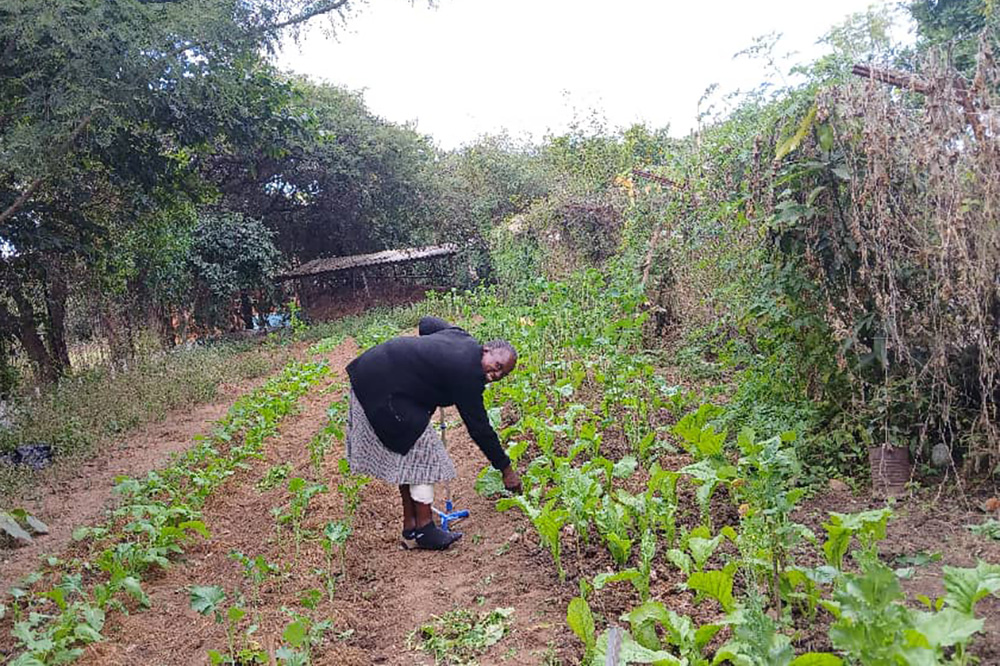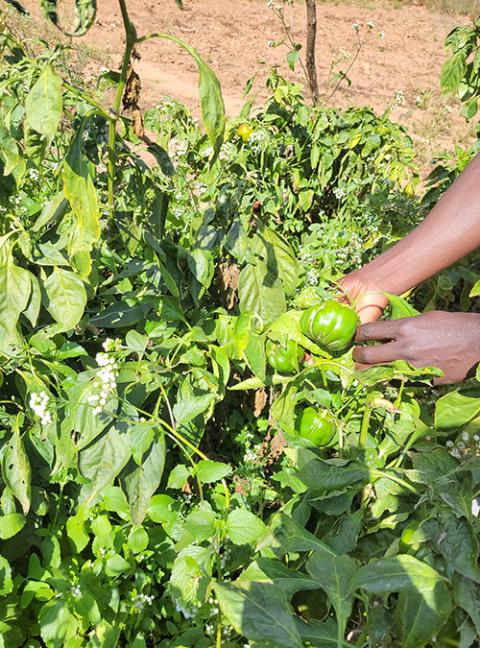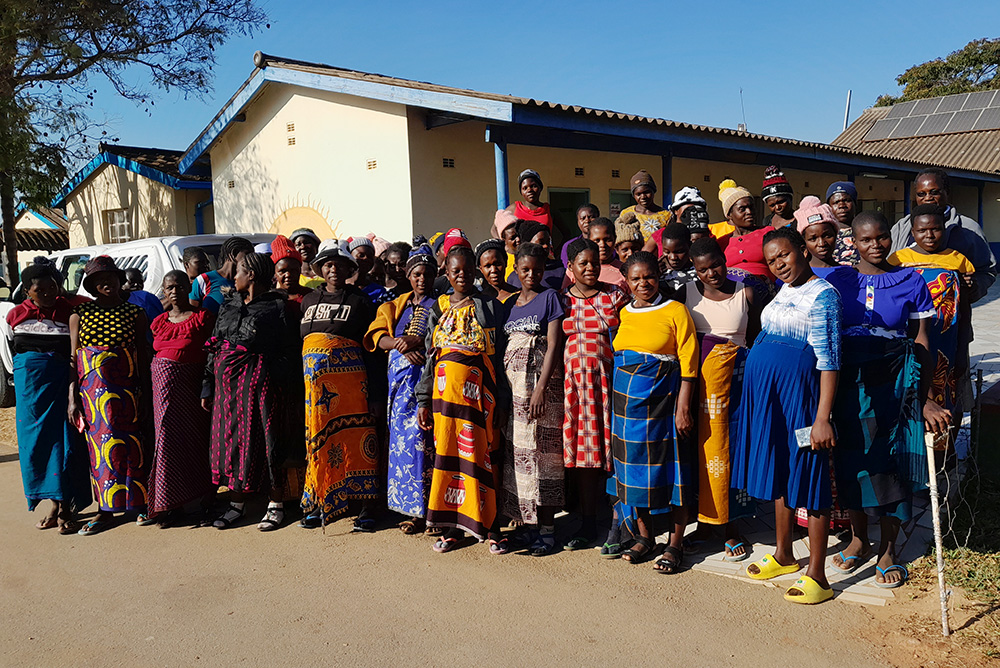
I belong to the International Medical Association, a Catholic congregation founded in Italy. We are religious sisters living out the Benedictine motto of "Ora et Labora" in Zimbabwe's rural areas, where we serve communities with limited access to health care and basic services.
Our congregation works under the Diocese of Chinhoyi, specifically at St. Albert's Mission. We are well-known for beginning HIV/AIDS antiretroviral medication treatment in Zimbabwe through the leadership of our late sister, Dr. Elizabeth Tarira. Before her passing, we also launched a horticulture initiative to support the hospital's nutritional program, as well as to teach the surrounding communities how to be self-sustaining.
We have managed St. Albert's Mission Hospital, a Catholic mission and critical care facility for the Diocese of Chinhoyi since 1953, which serves as the Muzarabani District hospital. Through St. Albert's Mission Hospital's Community Home-Based Care Program, we have delivered agricultural and humanitarian services in the Centenary District since 1991, prioritizing women's empowerment in organizational leadership.
Advertisement
Through a diversity of challenges and devastating impacts experienced in the Muzarabani District, the St. Albert's Mission Hospital Community Home-Based Care Program has become a major player in the humanitarian sector with the intention of leaving no one behind and bridging the inequality gap among the population through strengthening livelihood resilience strategies in the community. Thankfully, Muzarabani district's political climate is stable, with a strong district development committee, even though the economic conditions are unfavorable due to a national economic crisis and hyperinflation, which makes company investments uncertain.
The majority of people in the Muzarabani District rely on farming as their primary source of income, with tobacco farming dominating a higher portion of the region and livestock production and short season crop cultivation in the lower. In terms of the social environment, the district is notable for high rates of child marriage, gender-based violence cases and poverty caused mostly by drought-induced famine.
Because of periodic droughts in the lower half of Muzarabani, the district is rated seventh among Zimbabwe's most impoverished districts, according to research from Lupane University. Chadereka, Chiwenga and Machaya are among the most vulnerable wards, with many visiting St. Albert's Mission Hospital for medical care. This prompted us to gradually extend a humanitarian hand to locations beyond St. Albert's.
Despite the economic challenges we encountered in our district, we sisters recognized that we have the potential and capacity to contribute to the growth of a nation at the community level. Therefore, we decided to make efforts to address some of these issues. I am leading efforts to combat malnutrition-related ailments and promote economic entitlement for the most disadvantaged individuals of our area through individual and institutional garden projects.

This idea appealed to us sisters because we thought it could help us address many of the medical and social concerns of the population and might compel people to come for assistance in greater numbers. We thought that if small jobs opened in the hospital's nutritional garden, people from the surrounding areas would come to the hospital gate looking for work and food.
As time passed, nutritional garden produce was delivered to disadvantaged individuals as far as Chadereka, some 120 kilometers from St. Albert's Mission Hospital. Besides food, our organization helps with a wide range of social concerns in many regions, including gender-based violence, survivors of sexual abuse, child protection, cancer screenings and drug addiction treatment. All these humanitarian activities are addressed with proceeds earned from agricultural sales and operations.
Our nutritional gardens focus on the production of diverse vegetables like cabbage, spinach, lettuce, rugare, onions, covo, green maize, green beans and tomatoes. Production is conducted all-year round due to the availability of solar-powered boreholes for irrigation. Certified seeds, seedlings and organic manure are used for planting, and these methods provide a market competitive advantage for our produce.
Organic farming practices resonated with us after we realized the negative health effects of farming practices where fertilizers destroy soil nutrients. Regular use of compost manure now boosts our garden soil richness. Production is also sustainable because of the re-investment of some income profits into the garden project. Our markets are mostly local, as we rely on St. Albert's Mission Hospital, small local kitchen canteens, vendors and pregnant women staying at the hospital's maternal shelter.
Our comprehensive nutritional garden initiatives have alleviated and continue to alleviate problems in the communities. The majority of outstanding threats to health, as noted above, include malnutrition, child marriage, gender-based violence and prostitution, often practiced due to people not having other alternatives.
Our garden projects continue to serve a wide population with different needs, including the young and old, vulnerable women and girls, people with disabilities and people living with AIDS/HIV. They are sometimes used as sites to enhance ongoing training for local community members, particularly women, interested in conducting sustainable livelihood income generation activities in their own areas.

Women who benefit from the nutritional program gather at St. Albert's Mission Hospital in Muzarabani District, Zimbabwe. (Courtesy of Melania Nyamukuwa)
The nutritional garden initiative has provided a sustainable source of income for many families, reduced the number of school dropouts and child labor, and continues to reduce strain on the natural environment, which had previously been devastated by major tree cutting for firewood and charcoal production in the lower portion of the Muzarabani District.
Families who participate in the initiative can now send their children to school and are considered successful, with medium household food security even during this drought crisis. The institutional gardens also produce diverse vegetables to boost nutrition for patients in St. Albert's Mission Hospital, as well as for small canteens that provide food to people that come with their sick relatives to St. Albert's Mission Hospital.
We believe that our local efforts strengthen our country and we are proud of our efforts and grateful for all those who have helped us succeed. St Albert's Mission Hospital is committed to providing quality care and support to the underprivileged and to empower local communities to be hunger resilient.





